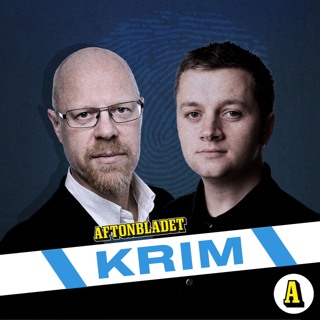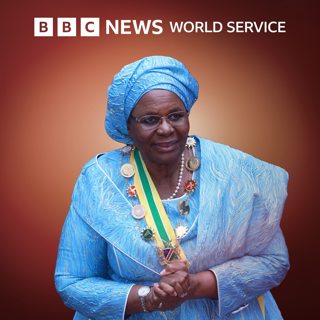
Netumbo Nandi-Ndaitwah, President of Namibia: What challenges does she face?
Mpho Lakaje, presenter of the BBC’s Africa Daily podcast, speaks to Netumbo Nandi-Ndaitwah, president of Namibia.The former freedom fighter is the country’s first female head of state - and only the second ever directly elected female leader in Africa.Namibia is celebrating thirty five years of independence this year - yet most of the country’s agricultural land remains in the hands of the white minority, and land reform is a key priority for President Nandi-Ndaitwah. Namibia’s former colonial power Germany has apologised for the genocide committed under its rule at the start of the twentieth century, but it has yet to make good on the promise of reparations. Mrs Nandi-Ndaitwah remains confident the development funding will be provided - however, she is not able to give a clear time frame. The Interview brings you conversations with people shaping our world, from all over the world. The best interviews from the BBC. You can listen on the BBC World Service, Mondays and Wednesdays at 0700 GMT. Or you can listen to The Interview as a podcast, out twice a week on BBC Sounds, or wherever you get your podcasts. Get in touch with us by emailing TheInterview@bbc.co.uk or using the hashtag #TheInterviewBBC on social media.
6 Apr 22min
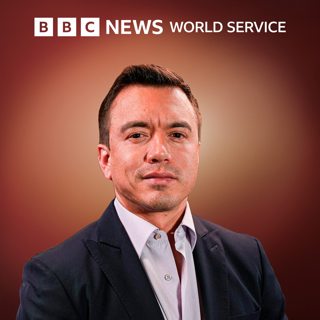
Daniel Noboa, President of Ecuador: Can Ecuador find peace?
BBC South America correspondent Ione Wells speaks to Daniel Noboa, President of Ecuador, ahead of the close-run presidential election.Since Mr Noboa came to power 16 months ago, he has taken an uncompromising stance on the violence gripping his country. With criminal gangs locked in a battle to control lucrative drug routes, President Noboa has militarised his country’s streets and prisons. Now he is calling on the United States and Europe to provide forces for back-up.Migrants fleeing Ecuador point to the chronic violence but also rising unemployment as reasons for leaving. In response, Mr Noboa has pledged to increase opportunities, tackle inflation and bring the violence under control. His critics say his tough stance has brought about little change. He also faces accusations of human rights abuses.The Interview brings you conversations with people shaping our world, from all over the world. The best interviews from the BBC. You can listen on the BBC World Service, Mondays and Wednesdays at 0700 GMT. Or you can listen to The Interview as a podcast, out twice a week on BBC Sounds, or wherever you get your podcasts. Presenter: Ione Wells Producer: Clare Williamson and Lucy Sheppard Editor: Sam BonhamGet in touch with us by emailing TheInterview@bbc.co.uk or using the hashtag #TheInterviewBBC on social media.
2 Apr 22min
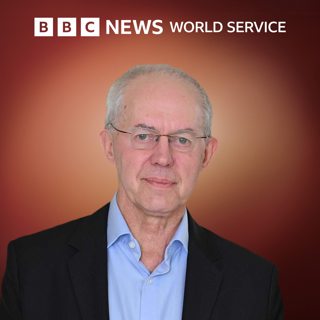
Justin Welby, former Archbishop of Canterbury: I forgive serial abuser John Smyth
I forgive serial abuser John SmythLaura Kuenssberg talks to Justin Welby, the former Archbishop of Canterbury. As the figurehead for the 85 million people in over 165 countries who call themselves Anglicans, he presided over some of the key events in the Commonwealth of the last ten years, including the funeral of Queen Elizabeth II. But his tenure was clouded, and eventually ended, by an abuse scandal that shook the church. This interview is the first with Justin Welby since he resigned. The Interview was made by Clare Williamson and Lucy Sheppard. It was hosted by Laura Kuenssberg. The editor is Sam Bonham. Thanks to our colleagues all over the BBC, and all over the world, for their support making The Interview.
31 Mars 22min
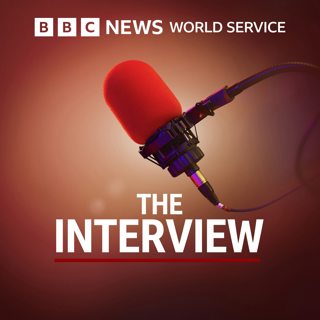
Introducing The Interview podcast
Laura Kuenssberg introduces The Interview podcast. First episode Monday 31 March. Conversations with people shaping our world, from all around the globe. The best interviews from the BBC.The HARDtalk podcast has become The Interview. Listen to The Interview for the best conversations from the BBC, the world's most trusted international news provider. We hear from titans of business, politics, finance, sport and culture. Global leaders, decision-makers and cultural icons. Politicians, activists and CEOs. Each interview is around 20-minutes, packed full of insight and analysis, covering some of the biggest issues of our time. How does it work? Well, at the BBC, our journalists interview amazing people every single day. And on The Interview, we bring them to you. It’s your one-stop-shop to the best conversations coming out of the BBC, with the people shaping our world, from all over the world. Get in touch with us on emailTheInterview@bbc.co.uk and use the hashtag #TheInterviewBBC on social media.
29 Mars 1min
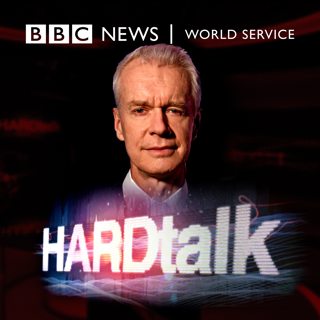
HARDtalk: Coda
A final look back at some of the encounters and moments that have encapsulated the programme’s commitment to rigorous, well-researched interviews with people in power.
28 Mars 22min

HARDtalk: The early years review
Ahead of HARDtalk’s closure, at the end of this month after 27 years, here’s a chance to look back at some of the most memorable interviews of the programme’s early years. It’s an extraordinary archive featuring interviews with Donald Trump, Nelson Mandela, Nina Simone, Robin Williams and Martha Gellhorn.
24 Mars 22min

Reid Hoffman: Should we trust the tech elite?
Stephen Sackur speaks to Reid Hoffman, the tech billionaire who co-founded LinkedIn and is a prophet of positivity about Artificial Intelligence.
19 Mars 22min

Allen Ault: Opposing the death penalty
Another chance to hear Stephen Sackur’s 2014 interview with Allen Ault. As the former commissioner of corrections in the US state of Georgia, Ault was responsible for state-sanctioned executions. He organised the killing of criminals until he could stand it no more. What made him leave his post and take up the campaign to end the death penalty?
17 Mars 24min





















